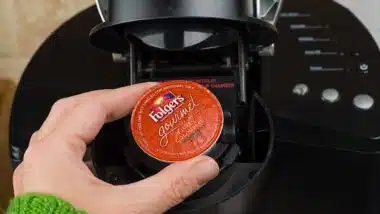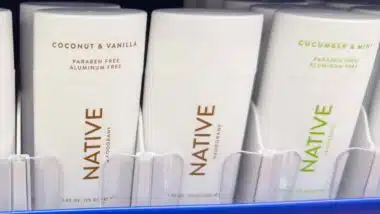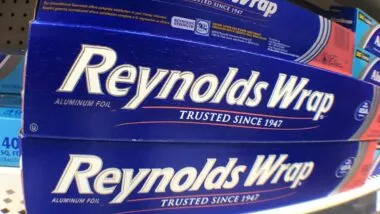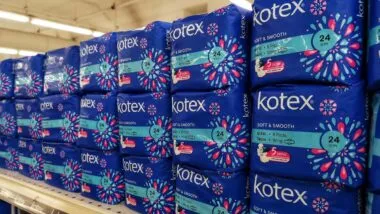
Update: Judge denies Williams-Sonoma’s request to limit thread-count class action
- A California federal judge denied Williams-Sonoma’s request to narrow a certified class in a lawsuit alleging it misled customers about the thread count of its bedding products.
- U.S. District Judge William H. Orrick ruled the company failed to prove consumers agreed to arbitrate claims, citing a lack of clear evidence that users had proper notice of the arbitration terms.
- The judge found that the design of Williams-Sonoma’s “Shopping Cart” and “Place Order” pages did not make the terms and conditions visually conspicuous enough to bind consumers.
- Williams-Sonoma attempted to exclude consumers who made online purchases or signed up for loyalty programs, gift registries or credit card accounts after certain dates, arguing those users had accepted arbitration clauses.
- The court rejected the company’s motion entirely, ruling it failed to meet its burden of showing that consumers were on inquiry notice of the terms during the relevant time periods.
(Dec. 14, 2021)
A class action lawsuit accusing Williams-Sonoma of falsely advertising an inflated thread count on its bed sheets has been locked in litigation since March 2016. In the latest battle, U.S. District Court Judge William Orrick stated in a February 22 hearing on William-Sonoma’s motion to dismiss that he was leaning towards granting part of the motion, and dismissing some of the claims against the high-end kitchen and home retail company.
The original Williams-Sonoma class action lawsuit filed by Plaintiff William Rushing alleged that he purchased Signature 600-Thread- Count Sateen Bedding, but after testing the sheets discovered its true thread count was only 291. The complaint contended that Williams-Sonoma used the false thread count and other misleading statements such as “lustrous 600-thread-count two-ply Egyptian-cotton sateen” to charge more for the bedding than it was actually worth.
The class action lawsuit asserted that Williams-Sonoma and several other retail companies violated multiple federal and California laws. Rushing sought to represent a class of all purchasers of bed sheets of 350 thread count or higher, purchased from a number of companies related to Williams-Sonoma.
In August 2016, as reported by Topclassactions.com, the claims against those other entities were dismissed from the class action. On the previous motion, Judge Orrick found that the bed sheets alleged as misleading by Rushing came only from Williams-Sonoma. Therefore, the judge dismissed all claims against the other defendants Pottery Barn, PBKids, PBTeen, West Elm, and a sister-company of Williams-Sonoma. In addition, Judge Orrick found that Rushing could only assert claims based on “products with identical product composition and/or appearance” to the ones he actually bought.
In this latest motion to dismiss, Judge Orrick stated that he would likely dismiss claims that Williams-Sonoma actively concealed information from consumers under the California Consumers’ Legal Remedies Act. In addition, Rushing’s claims based on the misleading advertising of other products may be dropped from the lawsuit.
However, the class action’s claims that Williams-Sonoma omitted facts from its advertising that made it misleading might survive. “I don’t know if there is a duty to disclose and whether it’s really limited to products without safety defects,” Judge Orrick stated. Cases from the Ninth Circuit and the California Supreme Court are apparently in conflict. The California Supreme Court case, according to the Plaintiff, holds that a manufacturer has a duty to disclose product information even when there is not a safety concern.
Judge Orrick also did not seem willing entertain the argument by Williams-Sonoma that the long class period requested in the class action complaint was barred by the statute of limitations. The judge proclaimed that it is too early in the case to consider that argument.
If you want to stay up-to-date on this class action, keep checking TopClassActions.com or sign up for our free newsletter for the latest updates. You can also “Follow” this case using your free Top Class Actions account to receive notifications when this article is updated by clicking the green “Follow Article” button at the top of this page.
Rushing is represented by George Richard Baker of Baker Law PC and Kathryn Honecker, Lauren Nageotte, and Audra Petrolle of Rose Law Group PC.
The Williams-Sonoma False Thread Count Class Action Lawsuit is William Rushing v. Williams-Sonoma Inc., et al., Case No. 3:16-01421, in the U.S. District Court for the Northern District of California.
Don’t Miss Out!
Check out our list of Class Action Lawsuits and Class Action Settlements you may qualify to join!
Read About More Class Action Lawsuits & Class Action Settlements:















28 thoughts onJudge denies Williams-Sonoma’s request to limit thread-count class action
I’m going thru this very same thing with them now. Trying to get resolution with inferior sheets. Add me
Please add me
Bought 3 sets for the family. Please add me!
Just bought these for my household. Please add me!
Add me please
Add me please
Sent my kids off to college with these sheets.
Add me